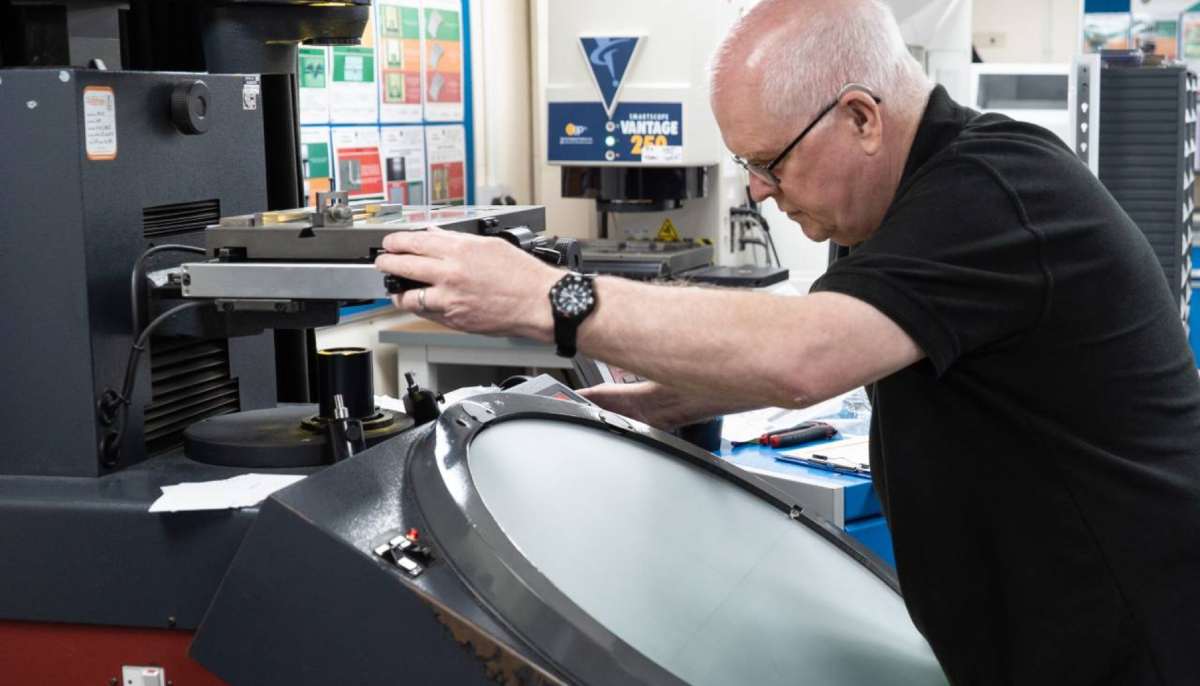Precision Stamping Reliability: The Batten & Allen Promise
In the intricate world of metal stamping, precision and reliability are more than goals. They’re absolute necessities.
Brands are choosing us to partner with them to bring innovate products to market quickly and cost effectively.
Working on a Prototype and need expert input, why not get in touch and talk with our experts.
3 min read
Batten & Allen Dec 8, 2023 8:27:13 AM
Far more than just a checkpoint, quality assurance is a fundamental pillar that upholds the integrity and success of every metal stamping project.
As industries increasingly rely on precision-engineered components, the role of quality assurance in metal stamping has evolved from basic compliance to a comprehensive, multi-faceted approach.
In today’s innovative engineering landscape, meeting basic specifications can be considered the bare minimum. Quality assurance in metal stamping goes beyond the baseline, encompassing a proactive approach to achieving first-rate outputs.
With laser focus on preventing defects and enhancing product reliability, modern quality assurance involves rigorous testing, regular inspections, and continuous process improvement.
By adopting such comprehensive measures, manufacturers can guarantee not only the physical accuracy of stamped parts but also their performance under real-world conditions.
The adoption of advanced testing and inspection techniques is crucial for ensuring the highest quality of stamped products. These sophisticated methods enable manufacturers to conduct thorough and precise evaluations at every stage of production.
One key technique is the use of 3D measurement tools, such as coordinate measuring machines (CMMs), which provide highly accurate dimensional analysis. These tools can measure the geometry of physical objects with extreme precision, ensuring that each stamped part adheres to the exact specifications required.
Material testing is another critical aspect, involving tests for tensile strength, yield strength, and hardness. These tests assess the material's ability to withstand forces and stresses, ensuring durability and suitability for specific applications. For instance, in safety-critical automotive components, material testing is indispensable for verifying that the parts can endure the rigors of use.
Surface inspection systems are also integral to the quality assurance process. These systems can detect surface imperfections that might compromise the functionality or aesthetic appeal of the final product. Techniques like laser scanning and digital imaging provide detailed surface analysis, identifying issues such as scratches, dents, or uneven finishes.
By integrating these advanced testing and inspection techniques, metal stamping manufacturers can identify and rectify potential quality issues early in the production process. This proactive approach to quality assurance not only ensures the production of defect-free components but also significantly enhances the overall reliability and performance of the final products.
For future-driven manufacturers, quality assurance is an ongoing journey. It requires a commitment to continuous improvement, which is achieved through regular training and development of staff, updating processes and equipment, and staying abreast of industry advancements. Skilled personnel are crucial in this process, as their expertise and attention to detail play a vital role in maintaining high-quality standards.
Adapting to industry-specific standards is one of the most vital elements of quality assurance.
Each industry has its unique set of requirements that stamped products must meet to ensure safety, functionality, and reliability. For example, in the aerospace industry - where the margin for error is virtually non-existent - components must comply with stringent standards such as AS9100. These standards cover a wide range of criteria, including material selection, manufacturing processes, and final product testing, to ensure the utmost safety and performance in high-stress environments.
In the medical device industry, standards like ISO 13485 are paramount. These standards ensure that products are not only precise but also biocompatible and safe for medical use. Compliance involves rigorous testing and documentation, ensuring that every component meets the critical requirements for medical applications.
Similarly, in the consumer electronics sector, where innovation and miniaturisation are key, standards focus on the precision, durability, and electrical properties of components. Adhering to these standards is essential for manufacturers to produce parts that are reliable, efficient, and compatible with rapidly evolving technology.
Meeting these diverse industry-specific standards requires a deep understanding of each sector's unique demands and a commitment to rigorous quality control processes. By ensuring compliance with these standards, metal stamping manufacturers can cater to a broad range of industries, delivering products that meet the highest levels of quality and reliability.
Effective quality assurance in metal stamping directly impacts customer satisfaction and business growth.
High-quality, reliable products lead to increased customer trust, repeat business, and a strong market reputation. In contrast, poor quality can result in costly recalls, reputational damage, and loss of business. Therefore, investing in quality assurance helps to build a foundation for long-term business prosperity.
Quality assurance in metal stamping is an essential process that goes beyond basic compliance.
To secure success, manufacturers must ensure excellence in every product - meeting diverse industry standards, as well as continuously improving processes and skills.
As the demand for precision-engineered components grows, the role of quality assurance is increasingly crucial in driving customer satisfaction and business growth – all while making a proven commitment to innovation.
When it comes to quality, consistency is key. Learn more here…

In the intricate world of metal stamping, precision and reliability are more than goals. They’re absolute necessities.

In the metal stamping industry - where precision and reliability are non-negotiable - advanced technology plays a pivotal role in monitoring and...

In the precision-driven world of metal stamping, the pursuit of zero defects Isn’t just an ambitious goal but a necessary standard. After all,...